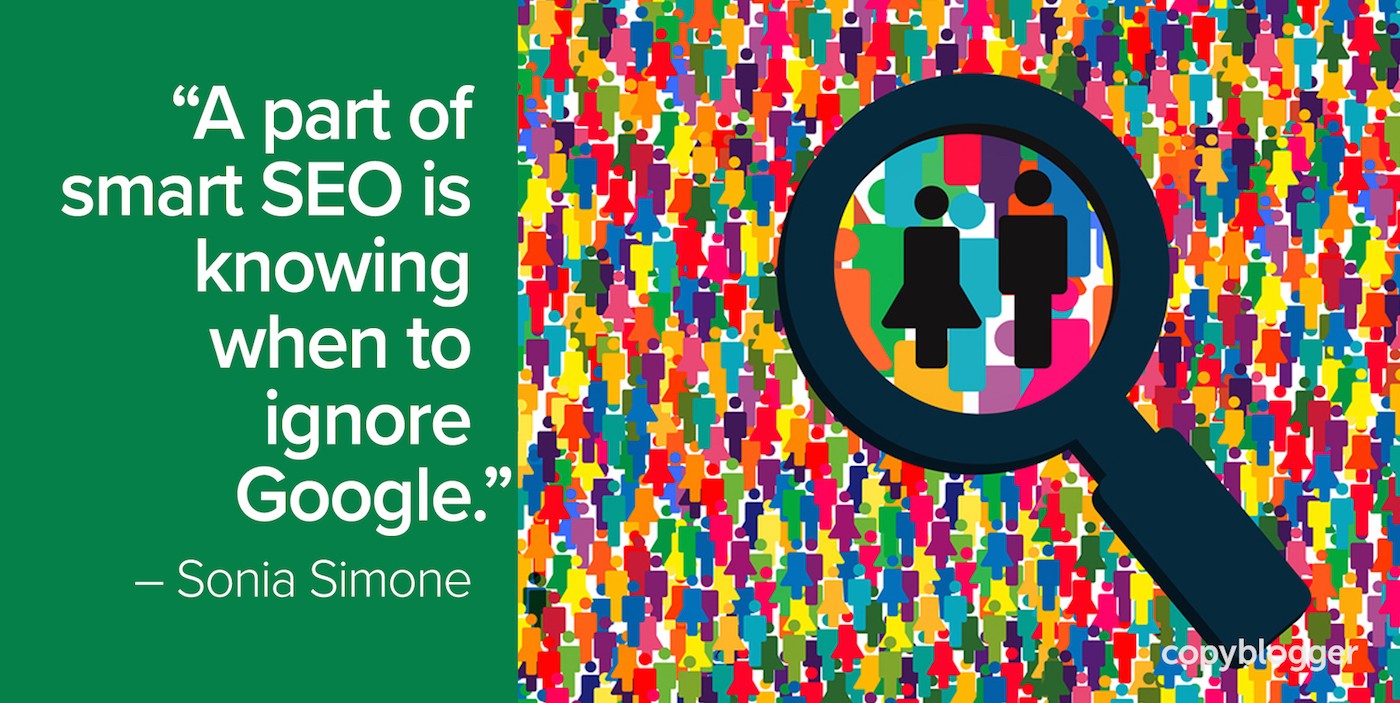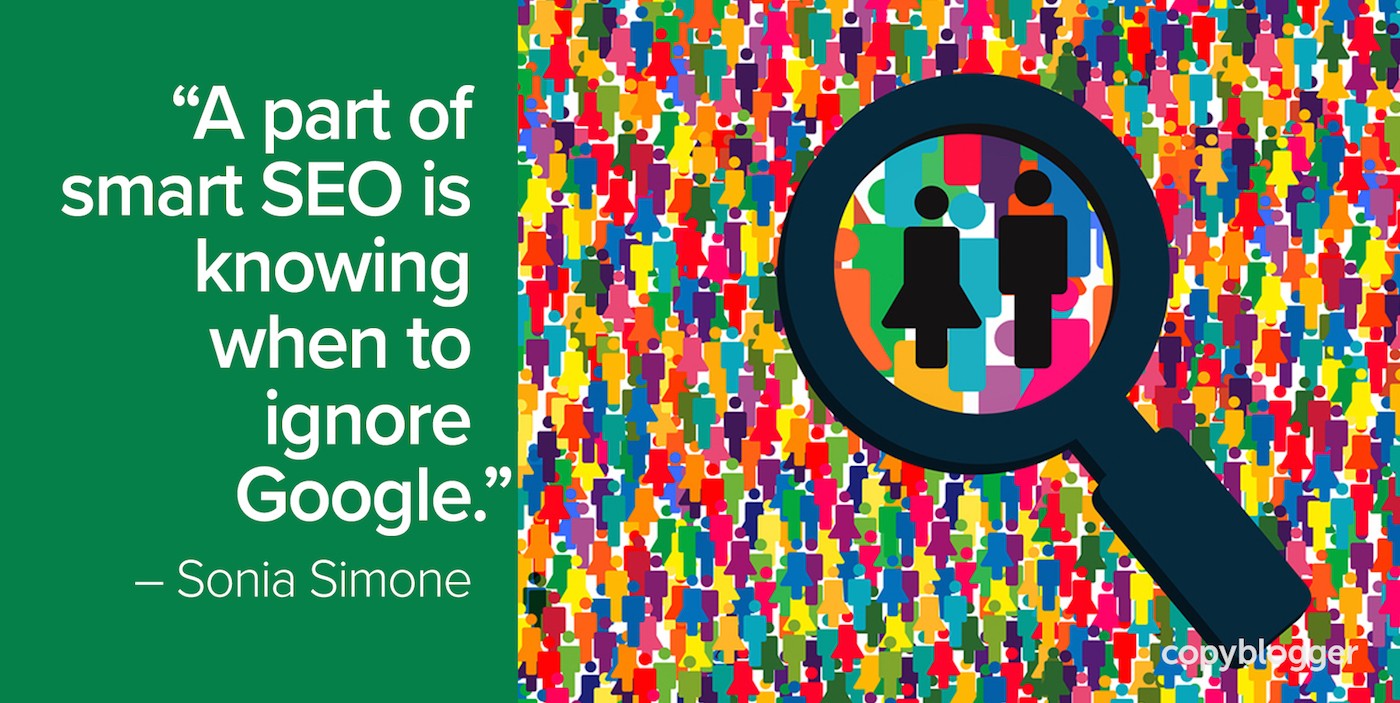But it’s 2018 now, and time to get over outdated ideas about SEO. Myth #1: The dreaded duplicate content penalty Any time I talk about SEO, someone asks if it’s okay to republish content on sites like Medium or LinkedIn Pulse. Here’s what Google has to say about it: “Duplicate content on a site is not grounds for action on that site unless it appears that the intent of the duplicate content is to be deceptive and manipulate search engine results.” – Google webmaster support Translating that into human, if you’re scraping content that someone else wrote, creating multiple versions of the same page in order to make your site look less pathetic, or using identical content on multiple sites to create an illusion of real links … yeah, that will make Google hate you. Search engines don’t want to serve three or four copies of the exact same piece of content on the search engine results page (SERP). Medium takes the extra step of adding the tag that tells search engines that your original site’s version is the “canonical” one — if you use their tools to publish your content there (as opposed to doing a cut and paste). Myth #2: SEO is about stuffing your work with keywords You’ll see this sometimes from people (too often clients) who want you to “SEO” a piece of content. Keywords are just the strings of words people use to find out more about your topic. Write for your audience first. Good content strategy is about getting incredibly clear on what you do, who you do it for, and why it matters — then communicating that effectively. Search engine optimization isn’t a favorite topic for most writers, and a lot of the education out there isn’t really designed for writers.

In my experience, creative writing pros have an endless appetite for writing advice.
How to add more color and texture to your writing, storytelling techniques, endless discussions about the serial comma and finer points of usage.
Elements like copywriting and conversion strategy? That tends to start to divide people up. Some writers want to pick up those killer skills, and some aren’t as comfortable with them.
But then there’s a topic that makes a lot of talented creative professionals throw up in their mouths a little.
I bet you know the one I mean.
It’s the fine art of writing content that can be found more easily on search engines — SEO copywriting.
First, it’s kind of technical — and “word people” sometimes (mistakenly) think that they’re not cut out to understand a bit of code.
Second, it’s had a checkered past. (Hey, who hasn’t.) There have always been cool, ethical, creative SEOs — but there was a time when they were often overshadowed by the mass of weird dudes who called themselves “black hat” and pretended to be some kind of low-level gangster.
But it’s 2018 now, and time to get over outdated ideas about SEO. If you make a living with words, or you want to, you owe it to yourself — and your clients — to gain a reasonable level of SEO literacy.
You’re not going to turn into a highly qualified SEO overnight. But it’s worth taking some time to get comfortable with the basics, so you can have smart conversations with your boss, with clients, with SEO professionals, or just make informed decisions for your own website.
With that in mind, here are a few SEO myths that I still see people buying into. Let’s clear them up and move forward.
Myth #1: The dreaded duplicate content penalty
Any time I talk about SEO, someone asks if it’s okay to republish content on sites like Medium or LinkedIn Pulse. “Will I get hurt by the duplicate content penalty?”
We can put this one to bed: No.
Here’s what Google has to say about it:
“Duplicate content on a site is not grounds for action on that site unless it appears that the intent of the duplicate content is to be deceptive and manipulate search engine results.”
– Google webmaster support
Translating that into human, if you’re scraping content that someone else wrote, creating multiple versions of the same page in order to make your site look less pathetic, or using identical content on multiple sites to create an illusion of real links … yeah, that will make Google hate you.
Search engines don’t want to serve three or four copies of the exact same piece of content on the search engine results page (SERP). So, your unique collection of words usually only shows up on one search result — and you normally want that one time to be the version that was published on your own site.
Fortunately, the search engine algorithms are usually smart enough to figure this out. Medium takes the extra step of adding the tag that tells search engines that your original site’s version is the “canonical” one — if you use their tools to publish your content there (as opposed to doing a cut and paste).
If you syndicate your work elsewhere (maybe as a guest post to increase your audience and reach more people), you can also add that canonical tag in. And if you have the same content appearing in multiple places on your own site, you can use the canonical tag to let search engines know which one you want to be considered the “official” version.
It’s a…

COMMENTS